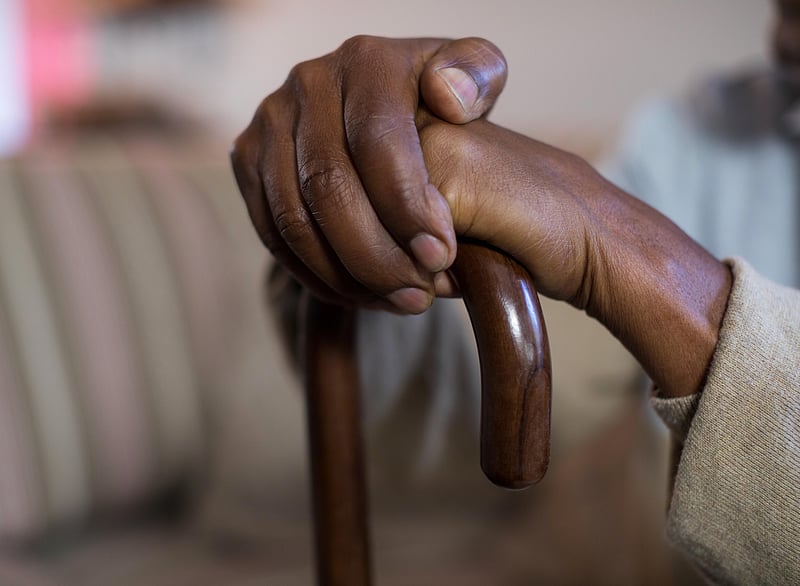Get Healthy!

- Cara Murez
- Posted November 1, 2022
Impact of Racism Could Slow Recovery After Heart Attack
Discrimination doesn't just cause emotional pain in the moment, it may affect a victim's physical recovery from a heart attack, new research suggests.
In studying more than 2,600 heart attack survivors between the ages of 18 and 55, researchers found that those reporting more perceived discrimination were more likely to have poorer outcomes.
A year after their heart attacks, they had more physical limitations and chest pain, lower quality of life and impaired mental health.
Perceived discrimination -- being treated unfairly because of personal characteristics such as race, gender or sexual orientation -- was already associated with risk factors for having a heart attack.
Discrimination is a chronic stressor, said study author Andrew Arakaki, a doctoral candidate at the Yale School of Public Health in New Haven, Conn.
"It's linked to a heightened reactive stress response as well as chronic systemic inflammation," Arakaki said. "There's quite a bit of literature out there about the impact of chronic inflammation on cardiovascular disease, and so that may be part of the underlying mechanism, but I think that what makes discrimination stand out from some other chronic psychosocial stressors is that it's also really closely linked to structural barriers to health." That includes things like economic status, access to health insurance and neighborhood investment.
It may be that disadvantaged people have trouble accessing essential post-care visits.
While the researchers determined that perceived discrimination affected heart-specific outcomes, they didn't find the same link with general health outcomes, Arakaki said.
It will be important to assess and consider the burden of discrimination when treating young heart attack patients, he added.
"It could also help identify patients who may have, or who are at higher risk for, worse recovery trajectories,"Arakaki said.
The researchers used the VIRGO study (Variation in Recovery: Role of Gender on Outcomes of Young AMI Patients) to analyze health outcomes after heart attack. The 2,670 participants were treated in the hospital for heart attacks between 2008 and 2012.
About 76% were white people, 17% were Black and 6% identified their race as "other,"which included American Indian/Alaska Native, Asian, Pacific Islander and East Indian. Ethnicity was considered apart from race, and nearly 8% of participants identified as Hispanic.
The patients completed three questionnaires one month after their heart attack and again at the 12-month mark.
About one-third of participants said they experienced discrimination in their everyday lives. Higher exposure to this behavior was associated with worse heart attack recovery on the Seattle Angina Questionnaire, which asks about frequency and duration of chest pain, physical stability and treatment satisfaction.
"One of the things we know is that stressors in general impact both the onset of disease and recovery from any sort of disease,"said Tené Lewis, an associate professor of epidemiology at Emory University in Atlanta, who was not involved in the new study.
"And one of the things we found in some of the work that I've done is that discrimination is a particularly potent stressor. It actually sometimes matters more than some of the other stressors that we study,"she added.
It hits hard, Lewis said, because people are social beings.
"When people are excluded or mistreated or their dignity is violated, that is experienced as a severe psychological insult that has real health implications,"she said.
For what happens in the health care system, quality of care indicators are needed. But it's hard to police interpersonal behavior in everyday life, she added.
To counteract psychological stressors like discrimination, Lewis suggested people seek physical activity and surround themselves with people who treat them well.
"Having compassion for yourself and really engaging in self-care, recognizing, especially if you've had a heart attack, that you're going to have a range of experiences in the clinical encounter that you can't control in addition to experiences in daily life that you can't control,"Lewis said. "So, then what are you doing to take care of yourself in that arena?"
Arakaki said follow-up is needed in a more diverse population, along with more study of potential ways to identify targets for intervention. Because most of the participants were white women, the findings may not apply across the population. The study didn't break down outcomes by race, gender, ethnicity or other status.
"I think that the interventions will certainly focus more on potentially improving access to care in that early recovery period, [and] there's been some recent work looking at social worker intervention in the clinical setting,"Arakaki said. "It's also important to acknowledge that clinicians may not be trained or have the capacity to "¦ implement some of these interventions. I think that those are some important steps that we need to take before we can really with certainty make any recommendations to patients or providers."
The findings are scheduled for presentation Sunday at an American Heart Association meeting in Chicago and online.
Research presented at medical meetings should be considered preliminary until published in a peer-reviewed journal.
More information
The U.S. Centers for Disease Control and Prevention has more on heart attack.
SOURCES: Andrew Arakaki, MPH, doctoral candidate, Yale School of Public Health, New Haven, Conn.; Tené Lewis, PhD, associate professor, Rollins School of Public Health, Emory University, Atlanta; presentation, American Heart Association meeting, Nov. 6, 2022
